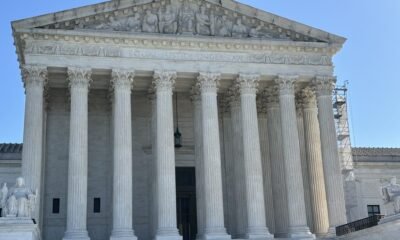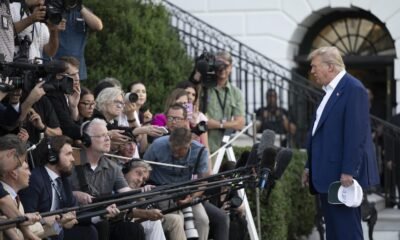Daniel Schwei
Second Federal Judge Halts Trump’s Spending Freeze with Temporary Order

WASHINGTON — A federal judge has issued a temporary restraining order against the Trump administration, blocking a spending freeze on grant and loan programs as outlined in a recently rescinded memo.
Judge Loren L. AliKhan of the U.S. District Court for the District of Columbia joins Chief Judge John J. McConnell Jr. of the U.S. District Court in Rhode Island, who made a similar ruling last week.
In her 30-page decision, Judge AliKhan emphasized that the administration’s actions potentially overstep constitutional boundaries by impeding Congress’s authority over federal appropriations. She stated, “OMB ordered a nationwide freeze on pre-existing financial commitments without considering any of the specifics of the individual loans, grants, or funds.” Furthermore, she criticized the ambiguity surrounding the freeze’s duration, questioning the OMB’s efforts to usurp legislative powers.
AliKhan dismissed a motion from a Department of Justice attorney aimed at terminating the case, arguing that the mere rescission of the memo does not negate the freeze if the actions continue. “Destroying the paper trail of allegedly illegal activity means nothing if the activity persists,” she remarked.
The legal conflict began in late January when the lawsuit, National Council of Nonprofits v. Office of Management and Budget, was filed the day after the OMB memo was issued. During a hearing, attorney Kevin Friedl pointed out instances where organizations still faced barriers accessing funds despite the memo’s rescission.
Daniel Schwei, representing the Department of Justice, contended that any ongoing funding delays were likely attributable to Trump’s executive orders rather than the OMB memo. However, Friedl countered, stating there were frozen funds unrelated to the executive orders and that no evidence supported the claim of discretionary agency holds.
Friedl also referenced a social media comment from White House Press Secretary Karoline Leavitt, asserting that the rescission of the OMB memo did not equate to lifting the funding freeze. “Why? To end any confusion created by the court’s injunction,” she stated, indicating the administration’s intent to press on with existing executive orders.
Judge AliKhan noted the administration’s apparent commitment to limiting federal funding, referencing Leavitt’s statements. She asserted that if the OMB’s actions were merely a façade with directives continuing unaltered, the legal issues would persist. “The appropriation of the government’s resources is reserved for Congress, not the Executive Branch,” she underscored, affirming the separation of powers as foundational to U.S. governance.
Additionally, AliKhan criticized the manner in which the OMB executed its spending freeze, imposed just before it was set to begin. “If Defendants intend to conduct an exhaustive review of what programs should or should not be funded, such a review could be conducted without depriving millions of Americans access to vital resources,” she wrote.
The implications of this ruling may unfold over the coming weeks as both cases proceed through the judicial system.
Last updated 5:30 p.m., Feb. 3, 2025


















